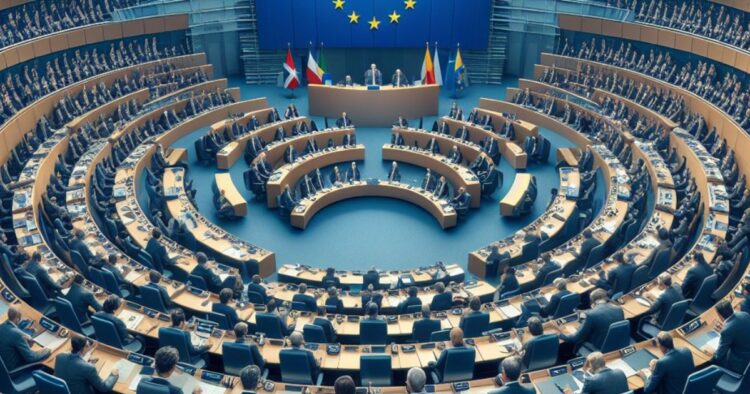In a landmark decision, the European Parliament has approved comprehensive regulations to oversee the development and use of artificial intelligence (AI) technology. The legislation, known as the Artificial Intelligence Act, aims to safeguard citizens from potential risks posed by rapidly evolving AI technology while also promoting innovation. These rules, initially proposed in 2021, have garnered widespread support and are set to reshape the AI landscape in Europe.
The approval of the Artificial Intelligence Act marks a significant step forward in regulating AI technologies following the emergence of Microsoft-backed OpenAI’s ChatGPT in late 2022, which sparked a global AI race. The European Parliament overwhelmingly supported the legislation, with only 46 out of 569 lawmakers voting against it. This strong backing underscores the urgency and importance of regulating AI in the European Union.
The new regulations will cover various aspects of AI, particularly focusing on high-impact and high-risk AI systems. These systems will be subject to specific transparency obligations and must adhere to EU copyright laws. Additionally, the act will regulate foundational models or generative AI, such as OpenAI, which are trained on large datasets to generate new content and perform tasks.
One of the key provisions of the legislation is the restriction on government use of real-time biometric surveillance in public spaces. Such surveillance will be limited to cases involving certain crimes, prevention of genuine threats like terrorist attacks, and searches for individuals suspected of serious offenses. These measures aim to strike a balance between security concerns and protecting individuals’ rights to privacy and freedom.
Italian lawmaker Brando Benifei, who played a crucial role in advancing the legislation, emphasized the significance of the AI Act in ensuring a safe and human-centric development of AI. He highlighted the importance of balancing innovation with safeguards to protect citizens’ interests. Romanian MEP Dragos Tudorache echoed these sentiments, emphasizing the delicate balance achieved in the legislation.
Thierry Breton, the EU’s internal market commissioner, hailed the passage of the AI Act, declaring Europe as a global standard-setter in trustworthy AI. The legislation adopts a risk-based approach, imposing stricter requirements on higher-risk AI systems and outright bans on AI tools deemed most threatening. Violations of the regulations could result in significant fines for companies, ranging from 7.5 million to 35 million euros, depending on the severity of the infringement and the firm’s size.
Despite intense lobbying from various stakeholders, including AI startups and tech giants, the EU remained steadfast in its commitment to enacting robust AI regulations. While acknowledging the challenges posed by corporate lobbying, EU officials affirmed their resilience in resisting undue pressure and ensuring the legislation’s integrity. The passage of the AI Act underscores Europe’s determination to lead the way in shaping the future of AI governance.

















Comments